Financial News
EDvance Literacy Systems Launches National Framework to Transform Literacy Instruction for Multilingual and Neurodivergent Learners in Underserved U.S. Schools
HILO, HAWAI‘I - September 24, 2025 - In an ambitious new initiative to close long-standing literacy gaps in underserved American schools, EDvance Literacy Systems has unveiled a groundbreaking white paper proposing a nationally scalable framework for inclusive English Language Arts (ELA) instruction. Developed by veteran educator and curriculum innovator Dr. Meriam B. Alvarez, the framework introduces a new model that blends evidence-based Structured Literacy practices with culturally responsive pedagogy and AI-supported learning tools—tailored explicitly for multilingual and neurodivergent students.

Titled “Designing a National Framework for Inclusive English Literacy Instruction for Multilingual and Neurodivergent Learners in Underserved U.S. Schools,” the white paper offers a policy-aligned, research-backed roadmap to deliver transformative results in ELA proficiency across high-need regions such as Arizona, Florida, and Hawai‘i—states where educational inequities disproportionately affect English learners (ELLs), students with disabilities, and those from low-income communities.
“Literacy is foundational to social equity, yet millions of students, especially those linguistically or cognitively diverse, continue to be left behind,” said Dr. Alvarez, founder of EDvance Literacy Systems. “Our framework is designed to change that. We’re not just proposing a curriculum but a movement toward instructional justice.”
A National Crisis with Disproportionate Impact
According to the National Assessment of Educational Progress (NAEP), only 33% of fourth graders in the U.S. scored at or above the proficient reading level in 2022. For English learners, that number plummets to less than 10%, with even lower rates among students with disabilities and those in rural or Indigenous communities. Compounded by outdated pedagogical models and a lack of trained educators, the literacy gap represents a national crisis with lasting implications for workforce development, civic participation, and generational poverty.
The challenge is particularly pronounced in states with large multilingual and Indigenous populations. In Arizona, recent shifts away from English-only mandates have exposed deep systemic gaps in support for ELLs. In Florida, school districts are grappling with reading interventions that don’t meet the linguistic needs of their diverse student populations. Meanwhile, in Hawai‘i, Native Hawaiian and Pacific Islander students face disproportionately low ELA achievement rates, often due to culturally disconnected curricula and limited access to neurodivergent-inclusive instruction.
EDvance Literacy Systems’ new white paper presents a comprehensive response to this challenge, offering a three-tiered implementation model that is culturally adaptive, tech-integrated, and teacher-empowering.
A Research-Based, Inclusive, and Tech-Enhanced Approach
At the heart of the proposed framework is the Inclusive Literacy Framework (ILF)—a modular, adaptable system grounded in four pedagogical pillars:
- Structured Literacy Foundations Aligned with International Dyslexia Association (IDA) standards, ILF introduces phonics-based, explicit instruction proven effective for all learners, particularly those with reading difficulties.
- Culturally Responsive and Sustaining Pedagogy (CRSP) Drawing from sociolinguistic research, the ILF centers the cultural backgrounds of learners—including Indigenous, Latinx, Filipino, and multilingual families—as assets in the learning process.
- Universal Design for Learning (UDL) ILF incorporates UDL principles to provide multiple means of engagement, representation, and expression—essential for reaching neurodivergent learners.
- AI-Enabled Differentiation Through adaptive reading platforms and speech-to-text tools, ILF uses technology to provide individualized learning experiences that respect each learner’s pace and profile.
“AI can be a powerful equalizer if deployed responsibly,” explained Dr. Alvarez. “Rather than replacing teachers, it enhances their ability to target instruction and monitor progress—especially in classrooms with wide variation in readiness.”
Focused Implementation in Arizona, Florida, and Hawai‘i
The white paper details state-specific proposals for early-stage implementation:
- In Arizona, EDvance will partner with rural districts serving high percentages of Spanish-speaking and Indigenous learners. The state’s shift away from English-only instruction presents a timely opportunity to rebuild literacy programs with equity at the core.
- In Florida, pilot programs will integrate ILF into middle schools where ELL enrollment exceeds 25%. These schools often struggle with over-identification of ELLs in special education—a pattern ILF aims to disrupt by improving core literacy access.
- In Hawai‘i, the model will be adapted to include Native Hawaiian cultural references and vocabulary, ensuring relevance and resonance for local learners. Pilot sites will include charter and community-based schools on the Big Island and O‘ahu.
Teacher training modules, coaching programs, and digital dashboards that track student progress in real time will support each state rollout. Within the first 12 months, EDvance aims to serve at least 12 schools across the three states and expand to additional regions through a scalable professional development infrastructure.
Alignment with Federal Policy: ESSA, IDEA, and EdTech Guidelines
One of the core strengths of the EDvance approach is its rigorous alignment with federal education mandates, positioning the framework as a high-impact, fundable solution for states and districts seeking compliance with national standards.
- ESSA (Every Student Succeeds Act): The ILF meets ESSA’s evidence-based standards for improving reading achievement and offers explicit strategies for serving Title I and Title III student populations.
- IDEA (Individuals with Disabilities Education Act): The framework supports inclusive classroom models that reduce reliance on pull-out special education services while increasing general education teachers’ ability to serve neurodivergent students.
- EdTech Evidence Toolkit: All digital components adhere to federal guidelines on usability, data privacy, and efficacy.
“By building the model to meet ESSA and IDEA expectations from the outset, we’ve ensured that it doesn’t just sound good in theory—it’s actionable in policy and practice,” said Dr. Alvarez.
Transformative Teacher Training
Recognizing that educational change hinges on educator capacity, EDvance Literacy Systems embeds a robust professional development (PD) model into the rollout:
- Initial workshops grounded in ILF methodology
- Ongoing virtual coaching from certified trainers
- Micro-credentials aligned with TESOL and dyslexia standards
- PLC (Professional Learning Community) toolkits to ensure peer-to-peer reinforcement
Dr. Alvarez’s white paper emphasizes that this PD structure is not an add-on, but a core pillar: “We are not here to drop off a curriculum. We are here to partner with teachers in their professional growth and respect their expertise.”
Measurable Impact and National Expansion
To ensure fidelity and impact, EDvance Literacy Systems is implementing a data-driven evaluation plan:
- Standardized reading assessments (e.g., DIBELS, WIDA)
- Fidelity checklists for instructional implementation
- Real-time analytics via AI-supported platforms
- Stakeholder reports to support school and district planning
The organization projects that within 3 years, full implementation of ILF in pilot schools will result in:
- A 25–30% increase in reading proficiency among multilingual and neurodivergent learners
- Higher teacher retention rates in ELA positions
- Reduced misplacement of ELLs in special education
- Lower costs in remediation and retention services
By Year 5, EDvance aims to expand to 100 schools in 10 states, focusing on those most affected by literacy inequities.
About EDvance Literacy Systems
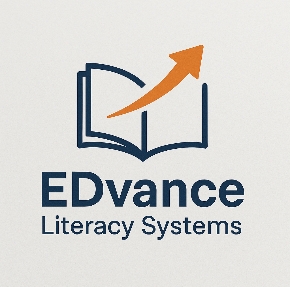
EDvance Literacy Systems is an Arizona-registered education consultancy committed to transforming literacy instruction through inclusive, culturally sustaining, evidence-based solutions. Dr. Meriam B. Alvarez founded the organization, which serves public, charter, and community-based schools across the U.S., focusing on rural, Indigenous, and multilingual communities.
Dr. Alvarez holds advanced degrees in language and special education and brings two decades of experience in education leadership, curriculum design, and professional development. Her vision is to empower schools with the tools, knowledge, and systems to ensure literacy success for every child, regardless of language background or learning profile.
Download the White Paper “Designing a National Framework for Inclusive English Literacy Instruction for Multilingual and Neurodivergent Learners in Underserved U.S. Schools” - Download link
Media Contact
Dr. Meriam B. Alvarez welcomes opportunities to collaborate with school districts, educational leaders, professional associations, and academic institutions committed to advancing equity in special education and literacy. Through her consultancy work, she offers customized training, keynote speaking, and capacity-building workshops focused on inclusive instructional design, tiered reading interventions, and data-driven special education leadership.
For inquiries related to partnerships, speaking engagements, or media features, please contact:
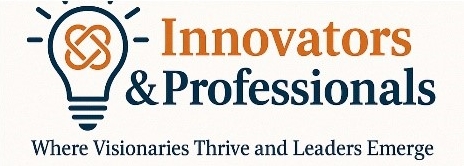
Email: info@innovatorsprofessionals.com
Website: www.innovatorsprofessionals.com
Media Contact
Company Name: EDvance Literacy Systems
Contact Person: Dr. Meriam B. Alvarez
Email: Send Email
Country: United States
Website: https://www.innovatorsprofessionals.com/
More News
View More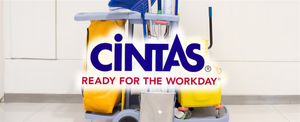
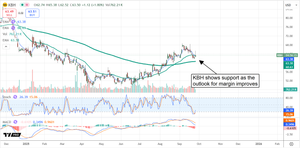
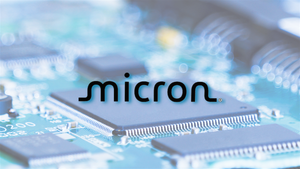



Quotes delayed at least 20 minutes.
By accessing this page, you agree to the following
Privacy Policy and Terms Of Service.



